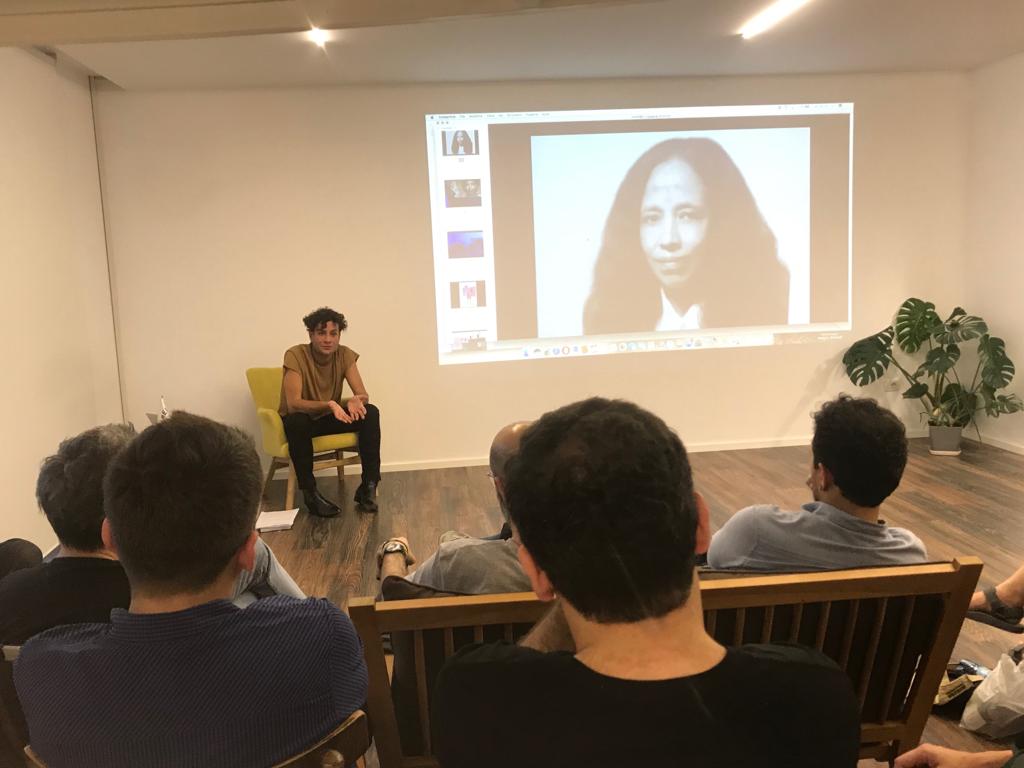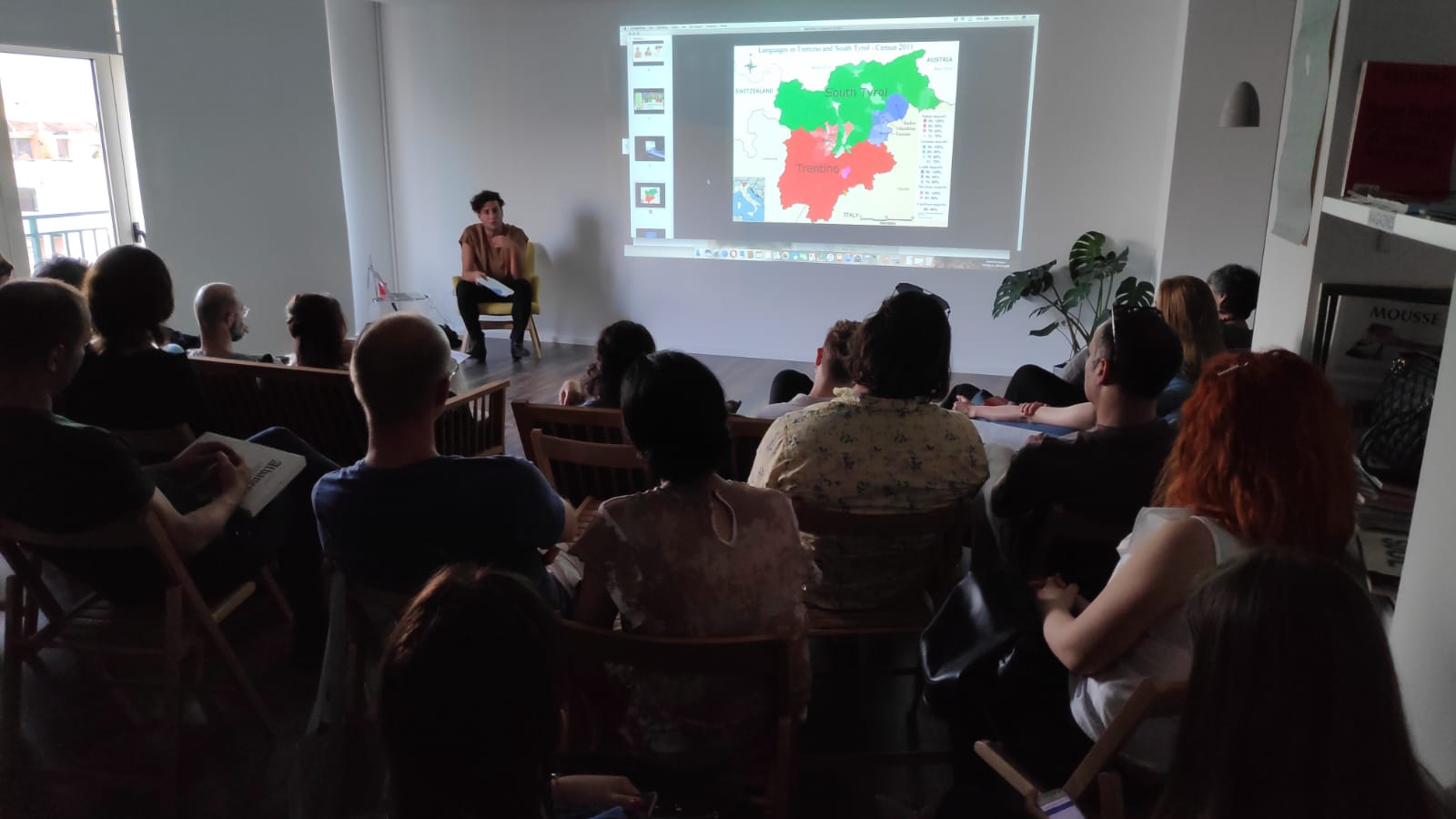On June 7th 2019, Harabel Contemporary Art Platform hosted a talk in its premises with researcher, writer and curator Simone Frangi. The event was held in cooperation with the Italian Institute of Culture.

As a professional in the field of aesthetics and art theory, as a lecturer in contemporary art theory, curator and co-curator in important art events, Simone Frangi mostly concentrates on artistic practices that underpin the very strong theoretical research, namely because it considers the principle of theory as a way of action.
From the curatorial point of view, Frangi’s opinion is that everything should come as a result of the continuous interaction between the artist and the curator, in his case; aiming at creating a common reflection on the notion of impression; by deciding not to accustom to a form of decision-making; by not following a rigid curatorial direction. According to him, the exhibition should not have a predetermined structure, it should take shape as it develops.
Frangi’s critical view focuses on the conflicting fragmented public sphere. The topic that attracts him the most is related to sensitive social phenomena such as: normative definitions of gender and race, as well as oppressive actions against them, collaborating with artists who reflect on the interrelated roles of sexuality, gender, ethnicity and class within the global phenomena of power and inequality.
Simone Frangi focused on many of his works, among others in the recent curatorial project, “Somatechnics”. “Somatechnics” is a multi-dimensional program devoted to the comprehensive relationship between racial embodiments, visibility and mobility in Italy and Austria, in the border areas where the nations of these two countries are separated / united. Starting from the historical and geo-cultural features in Trentino Alto Adige, the program looks into the processes of establishing an ethnic identity in connection with linguistic identity and the many features of affiliation, as well as inscriptions / infringements that outline our bodies in particular territories.
In his academic and curatorial work, Simone Frangi uses curating as a means of creating discussing communities and assembly forms. He has recently collaborated with artists and practitioners who are trying to break up the current European colonialist culture and especially the Italian one: historical colonialism and its predatory ideology continue to operate in the contemporary world through a cultural heritage that bases its wide spread action in creating a colonial amnesia.



